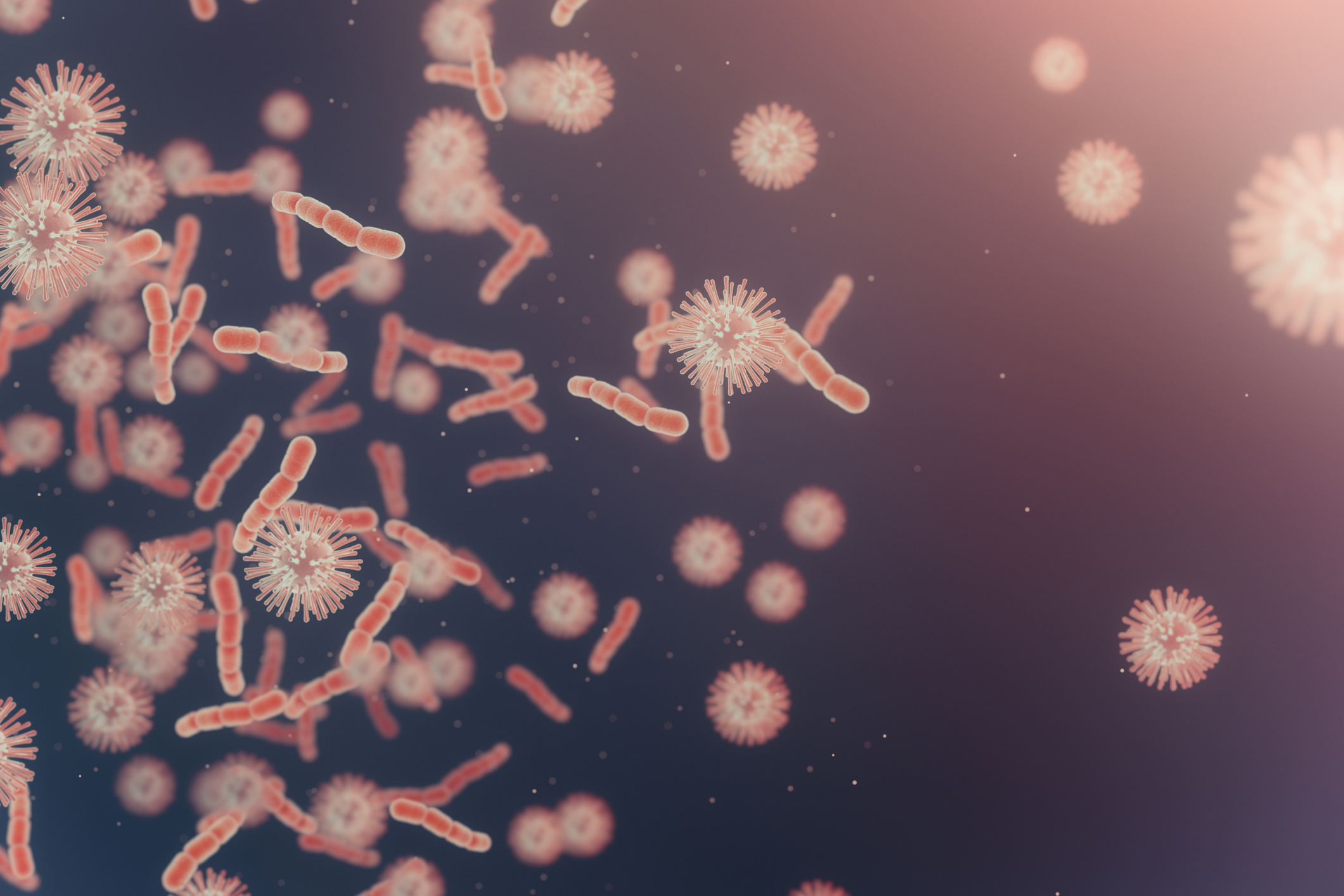Get Easy Health Digest™ in your inbox and don’t miss a thing when you subscribe today. Plus, get the free bonus report, Mother Nature’s Tips, Tricks and Remedies for Cholesterol, Blood Pressure & Blood Sugar as my way of saying welcome to the community!
Superbugs: The not-so-sweet side effect of a food additive

Of all the antibiotic-resistant bacteria out there that wreak havoc on our health, there’s one that’s especially dangerous for those of us 65 and over.
Each “superbug” causes its own particular type of infection. Some cause recurring urinary tract infections, while others cause skin infections.
The one we’re talking about causes severe diarrhea. Inconvenient, for sure.
But if you’re over 65 and are infected by this bacterium, you have about a ten percent chance of dying within the month.
And to make matters worse, a commonly used FDA-approved food additive may be responsible for the dramatic rise in infections caused by this dangerous superbug…
C. diff: one of the deadliest superbugs
Clostridium difficile, better known as C. diff., is a bacterium that causes severe diarrhea and colitis (inflammation of the colon).
According to the CDC, C. diff causes about half a million infections in the United States each year.
Being 65 or older is a major risk factor for contracting a C. diff infection.
Symptoms of an infection include severe diarrhea, fever, stomach tenderness or pain, loss of appetite, and nausea.
Many people get repeated C. diff infections, usually within two to eight weeks of the previous one.
Most cases of C. diff are “hospital-acquired” where they can live on hard surfaces. The bacteria are also present in the gut microbiomes of most people where it typically doesn’t cause a problem unless dysbiosis occurs.
Dysbiosis is when an imbalance in the microbiome allows a dangerous strain of bacteria to take over.
Overuse of antibiotics can cause dysbiosis. Can you guess what else can? Yep, that food additive.
Trehalose: not as innocent as it seems
Trehalose is a saccharide (sugar) that is found naturally in many types of mushroom, seaweed and seafood — foods that, as a whole, are considered healthy.
But in 1994, Japanese company Hayashibara Co., Ltd. developed a way to mass-produce trehalose. The sugar is now used to prolong the shelf life of food products as wide-ranging as nutrition bars and chewing gum.
In 2016, scientists from Hayashibara published the results of a randomized controlled trial, claiming that a small amount of trehalose could “potentially reduce the development of metabolic syndrome and associated lifestyle-related diseases, such as type 2 diabetes.”
But around the same time, independent researchers found a problem with trehalose that far outweighs this potential benefit.
In 2018, scientists at Baylor University found that a particularly harmful strain of C. diff, known as RT207, is especially good at metabolizing trehalose.
At that time Dr. Robert Britton noted “In 2000, trehalose was approved as a food additive in the United States for a number of foods from sushi and vegetables to ice cream, and about three years later the reports of outbreaks with these lineages started to increase.”
But as researcher James Collins from the Baylor College of Medicine pointed out, “These lineages have been present in people for years without causing major outbreaks.”
But when you eat foods with trehalose, it’s like scattering birdseed to attract birds to your yard. Except in this case, you’re feeding deadly bacteria and inviting it to thrive in your gut.
Where trehalose is hiding
In a word: everywhere.
Trehalose is used to extend the shelf life of products, as well as to lend a slightly sweet flavor.
It’s found in:
- Nutrition bars
- Ice cream
- Cereal
- Sushi
- Frozen foods
- Processed desserts and baked goods
- Fruit juices
- White chocolate
- Fast food
- and more.
To lower your risk for C. diff, drastically lower how often you eat processed foods. Here are a few other steps that can help.
- Don’t take antibiotics unless you absolutely need them for a true bacterial infection.
- Don’t take PPI (proton pump inhibitors) for acid indigestion.
- If you are in a hospital or other healthcare facility, wash your hands often to avoid letting the bacteria enter your body. Make sure everyone else is frequently washing their hands too.
- Support a healthy balanced gut microbiome with probiotics and prebiotics.
Editor’s note: Did you know that when you take your body from acid to alkaline you can boost your energy, lose weight, soothe digestion, avoid illness and achieve wellness? Click here to discover The Alkaline Secret to Ultimate Vitality and revive your life today!
Sources:
A Common Sugar Additive Could Be Driving The Rise of One of The Most Aggressive Superbugs — Science Alert
This food additive is hard to avoid and could make hospital superbugs more deadly — cbc.ca
Dietary sugar linked to increasing bacterial epidemics — Eureka Alert
What is C. diff? cdc.gov
Dietary trehalose enhances virulence of epidemic Clostridium difficile — themethodsman.com













